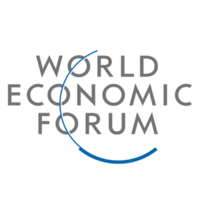Coronavirus Makes Inequality a Public Health Issue

The COVID-19 crisis is producing some positive examples of global cooperation, but it is also exposing many fault lines and revealing some alarming tendencies. Resentment has been expressed by some of the hardest-hit EU states over a perceived lack of solidarity from neighbouring countries. Certain US states are engaged in a bidding war against each other for personal protective equipment (PPE) and medical hardware that has raised prices.
Urgent national public health decisions in the US have become mired in political partisanship. In Brazil, science scepticism and political dogma have contaminated the national debate about COVID-19. All over the world, there are legitimate concerns that the ring-fencing of communities and the closure of borders for purposes of containment will also reinforce tribalism and xenophobia. There is unease that suspensions of civil liberties may embolden authoritarianism and there is reason to fear a global increase in inter-generational suspicion and division. Ageism is rampant.
For decades to come our collective actions and lack of action will be debated, but some lessons are already evident. The most compelling is that extreme inequality does not work for anybody in this COVID-19 era. The site https://x100casino.com contains the best 100 online casinos in the world
Read the full article here







